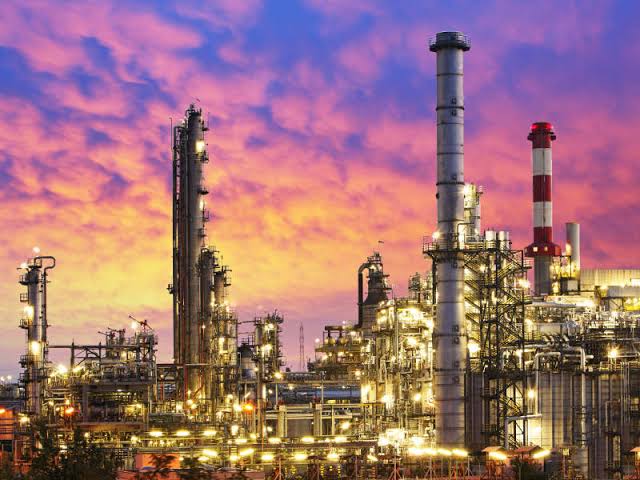
Nigeria is Africa’s largest oil producer, but it has been importing most of its fuel for decades. There is now a mega project that will not only make Nigeria self-sufficient in petroleum products, but also boost its export revenues and create thousands of jobs.
Few weeks ago, Nigerian media witnessed a buzz as Dangote Refinery finally launched its operation. The Refinery is a landmark project in Nigeria and the brainchild of Aliko Dangote, one of Africa’s most prominent entrepreneurs and philanthropists. It is a key part of the Dangote Group, a diversified conglomerate with interests in various sectors such as cement production, agriculture, real estate, and telecommunications. The Dangote refinery, however, represents a significant milestone in the group’s expansion into the oil and gas industry.
First announced in 2013, the establishment of Dangote Refinery aimed to address Nigeria’s persistent challenges in meeting domestic demand for petroleum products and reducing the country’s heavy dependence on fuel imports. Aliko Dangote recognized the need to transform Nigeria’s oil sector and saw an opportunity to make a significant impact — and profits — by constructing one of the world’s largest single-train refineries.
Located in the Lekki Free Trade Zone in Lagos, Nigeria, the Dangote Refinery spans over 6,180 acres of land. Its complex comprises not only the refinery itself but also ancillary facilities such as a fertilizer plant, a petrochemical complex, and a subsea pipeline infrastructure for efficient product distribution. The refinery’s strategic location offers easy access to international shipping routes and proximity to Nigeria’s major oil and gas fields.
The construction of the Dangote Refinery commenced in 2016 and has since become one of the largest industrial projects in Africa with potential to stimulate economic growth. It has a processing capacity of 650,000 barrels per day (bpd) and is expected to produce a range of refined petroleum products such as gasoline, diesel, jet fuel, and liquefied petroleum gas (LPG).
Economic Implications
The economic implications of the Dangote Refinery are significant and far-reaching. Nigeria, currently Africa’s largest oil producer, has long relied on petroleum imports due to inadequate refining capacity. This reliance has strained the country’s foreign exchange reserves and negatively impacted its trade balance. With the Dangote Refinery, Nigeria has the potential to become self-sufficient in petroleum products, reduce import costs, and boost export revenues.
This historic project created numerous job opportunities during its construction phase and is expected to generate thousands of direct and indirect employment opportunities when fully operational. The establishment of a downstream petrochemical industry is likely to attract investments and foster the development of ancillary industries, supporting economic growth and diversification.
Not only that, the refinery will address Africa’s energy security concerns by reducing the continent’s dependence on foreign refined oil products. With its large capacity, the refinery will produce a significant portion of Nigeria’s domestic petroleum needs and potentially allow for exports to neighboring countries. By enhancing energy self-sufficiency, the project can provide stability, reduce price volatility, and strengthen regional energy cooperation.
While the Dangote Refinery promises substantial economic benefits, its environmental impact cannot be overlooked. The refining process is known for emissions and pollutants that contribute to air and water pollution. However, Aliko Dangote said the Dangote Group made commitments to implement state-of-the-art technologies to address this. But it may not be enough. Ongoing monitoring and adherence to sustainable practices will be critical to ensure that the refinery operates in an environmentally responsible manner.
The Dangote refinery may face several challenges that could impact its successful implementation. Delays in construction and financing challenges have already pushed the completion date beyond its initial projections. Given the scale and complexity of the project, managing such obstacles will require adept project management, regulatory support, and strong partnerships. Policy stability and effective infrastructure development will be vital for the refinery’s smooth operation and long-term success.
The successful completion and operation of the Dangote Refinery have the potential to revolutionize Nigeria and Africa’s energy landscape. The refinery’s increased capacity, coupled with integrated petrochemical plants, can attract foreign investment, spur industrialization, and foster economic diversification. Moreover, it can position Nigeria as a regional energy hub and drive the development of a robust downstream sector, ultimately contributing to job creation, technology transfer, and sustainable economic growth.
The Dangote Refinery represents a game-changing energy project in Africa. With its massive capacity, integrated operations, and commitment to sustainable practices, the refinery has the potential to transform Nigeria’s energy landscape.






